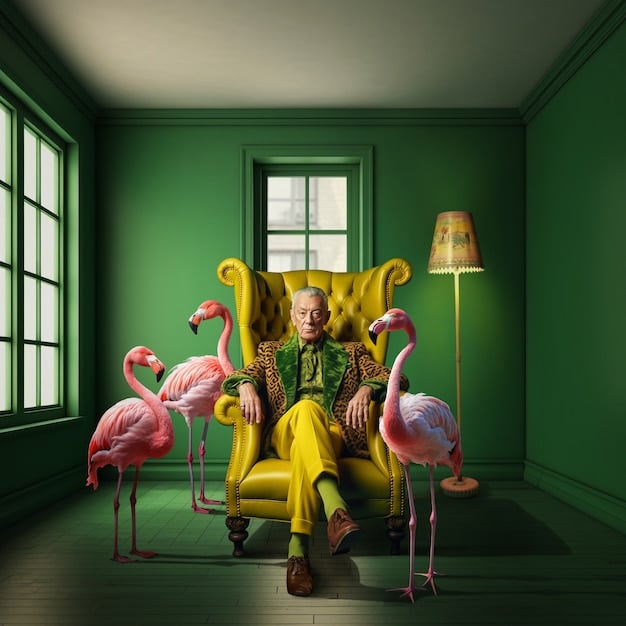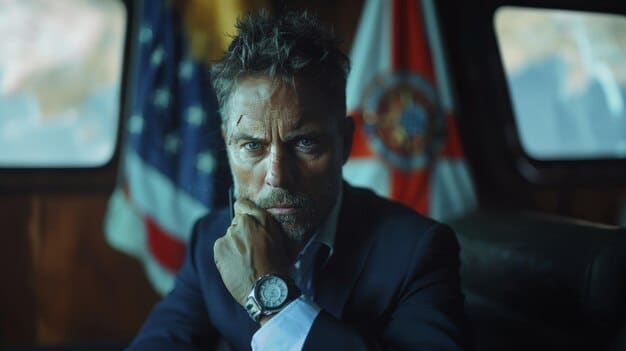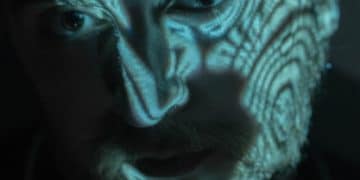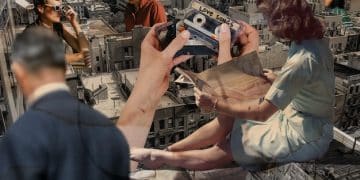Unveiling The Truman Show: A Timeless Exploration of Reality and Control

The Truman Show, released in 1998, is a poignant satire exploring themes of manufactured reality, existentialism, and the human desire for authenticity, centering on Truman Burbank, who unknowingly lives his entire life as the star of a reality TV show.
Have you ever questioned the reality around you? The Truman Show masterfully blurs the lines between fiction and reality, inviting us to ponder the authenticity of our own lives.
The Truman Show: A Groundbreaking Satire
Released in 1998, The Truman Show isn’t just a movie; it’s a cultural phenomenon that continues to resonate with audiences today. Directed by Peter Weir, the film presents a seemingly idyllic world that slowly unravels to reveal a shocking truth about its protagonist, Truman Burbank.
The film’s brilliance lies in its ability to blend humor and social commentary, creating a thought-provoking experience that leaves viewers questioning the nature of reality and the influence of media in their own lives.

The Premise: Life as a Script
The core concept of The Truman Show centers on Truman Burbank (played by Jim Carrey), who is, unbeknownst to him, the star of a 24/7 reality television program. His entire life, from birth, has been meticulously crafted and broadcast to the world.
- Manufactured Existence: Truman’s town, Seahaven, is a giant set populated by actors who play out their roles in his life.
- Constant Surveillance: Thousands of hidden cameras capture his every move, broadcasting it to a global audience.
- Controlled Environment: The weather, events, and even the people he interacts with are all orchestrated by the show’s creator, Christof.
The genius of the movie is how subtly it introduces this mind-bending premise, allowing the audience to slowly piece together the truth alongside Truman.
In essence, the film uses Truman’s extraordinary situation to explore universal themes about freedom, choice, and the pursuit of truth in a world increasingly saturated with media and manufactured experiences.
Jim Carrey’s Stellar Performance
While the film’s premise is intriguing, it’s Jim Carrey’s performance that truly elevates The Truman Show. Known for his comedic roles, Carrey delivers a nuanced and captivating portrayal of a man grappling with the realization that his life is a lie.
Carrey’s ability to balance comedic timing with genuine emotional depth brings a remarkable complexity to Truman, making him both relatable and sympathetic.
Beyond the Comedy: Emotional Depth
Carrey’s background in comedy makes Truman’s initial naivety and optimism believable, but it’s in the moments of doubt and realization that his talent truly shines. The actor masterfully conveys the character’s growing unease and desperate yearning for authenticity.
His performance isn’t just about amusement; it’s a deep dive into the psyche of a man forced to confront the artificiality of his world. The vulnerability Carrey brings to the role makes audiences root for Truman’s escape, investing deeply in his emotional journey from unwitting participant to conscious seeker of truth.

Ultimately, Jim Carrey’s performance in The Truman Show is a career highlight, showcasing his versatility as an actor and solidifying the film’s emotional core.
Themes of Reality, Control, and Freedom
At its heart, The Truman Show is a profound exploration of several interconnected themes that resonate deeply with contemporary society. The film tackles issues of reality, control, and freedom, prompting viewers to question the forces shaping their own lives.
The movie’s enduring appeal stems from its ability to tap into universal anxieties about manipulation, surveillance, and the search for genuine experience.
It’s a film that continues to spark conversations about the balance between security and freedom, offering a critical lens through which to view the increasing intrusion of media into personal lives.
The film’s exploration of these themes allows for layers of interpretation, from a critique of media culture to a philosophical inquiry into the nature of existence and the pursuit of meaning in a world that sometimes feels fabricated.
The Illusion of Choice
Truman’s world is meticulously designed to give him the illusion of choice. Every aspect of his life is pre-determined, yet he believes he is making his own decisions.
- Fear as a Barrier: Christof uses Truman’s invented fear of water to keep him from leaving Seahaven by sea.
- Emotional Manipulation: Truman’s relationships are orchestrated to keep him complacent and within the confines of the show.
- Subliminal Messaging: Advertisements and interactions subtly reinforce the idea that his life in Seahaven is perfect.
This manipulation raises questions about the extent to which our own choices are truly free, or influenced by external forces and hidden agendas.
Christof: The Architect of Truman’s World
Ed Harris delivers a captivating performance as Christof, the creator and director of The Truman Show. He is the architect of Truman’s world, a visionary who believes he is giving Truman a better life than he could have on his own.
However, Christof’s paternalistic control raises ethical questions about the rights of an individual versus the desires of an audience.
A Godlike Figure
Christof sees himself as a benevolent creator, shaping Truman’s destiny with a godlike authority. He defends his actions by arguing that Truman is safer and happier within the confines of his controlled environment.
- Obsessive Control: Christof monitors Truman’s every move, orchestrating events to maintain the illusion of reality.
- Moral Justification: He believes he is providing Truman with love and security that the real world could not offer.
- Ethical Ambiguity: Christof’s actions highlight the ethical complexities of creating and controlling a life for entertainment.
The character of Christof serves as a cautionary tale about the dangers of unchecked power and the ethical responsibilities of creators in a media-saturated world.
His justification of control as salvation challenges viewers to consider the cost of security when it comes at the expense of freedom.
The Significance of Seahaven
Seahaven, the idyllic town where Truman lives, is more than just a set; it’s a symbol of manufactured perfection. The town represents the artificiality and superficiality that Truman eventually rejects.
The town is designed to be appealing, providing the perfect life. The constant sunshine, friendly neighbors, and lack of real-world problems create an environment free from real worry or concern.
The film deliberately contrasts this artificial paradise with the genuine experiences and authentic connections that Truman seeks beyond its borders.
Seahaven is a reflection of the curated realities promoted by media, a symbol of the comforts and constraints of a life lived under constant surveillance and control.
A Façade of Happiness
The residents of Seahaven are actors, their smiles manufactured, and their lives dedicated to maintaining the illusion of Truman’s perfect world.
The town is a symbol of the false promises of consumerism and the allure of a life free from hardship challenges viewers to consider the trade-offs between comfort and authenticity, questioning the true cost of a curated existence.
Truman’s journey from contentment to disillusionment underscores the importance of genuine experience and the human need for self-discovery.
The Ending: A Triumph of Free Will
The climax of The Truman Show is a powerful moment of liberation, as Truman defies Christof and chooses to leave Seahaven, stepping out into the unknown.
His decision to embrace the uncertain instead of the safety highlights the film’s message about the importance of individual autonomy and the human spirit’s indomitable yearning for self-determination.
His courageous act serves as a strong declaration that a life of genuine experience, even with its inherent risks and uncertainties, is richer and more meaningful than one of controlled comfort and predictable outcomes.
The viewers are left to ponder the implications of his choice, considering the broader societal impact of the film’s commentary on media, manufactured environments, and the value of truth and freedom.
Ultimately, Truman’s act represents a powerful statement about the human pursuit of true experience and the courage required to go against the grain.
| Key Point | Brief Description |
|---|---|
| 🎬 Manufactured Reality | Truman’s world is a giant set, his life a reality show. |
| 🎭 Jim Carrey’s Performance | Carrey delivers a nuanced portrayal of a man seeking truth. |
| 👤 Ethical Control | Christof’s control raises questions about individual rights. |
| 🚪 Freedom’s Choice | Truman’s exit symbolizes the pursuit of freedom from control. |
FAQ
▼
The film explores themes of manufactured reality, control, and the human desire for authenticity and freedom. It questions the nature of truth and the influence of media in our lives.
▼
The film critiques the pervasive nature of reality television and the ethical implications of creating entertainment at the expense of an individual’s autonomy and the public’s voyeuristic tendencies.
▼
Seahaven symbolizes a manufactured paradise, representing the artificiality and superficiality of a life lived under constant surveillance and control. It’s a world devoid of genuine experience.
▼
Truman leaves Seahaven in search of truth and freedom. He realizes that his life is a lie and seeks to discover the real world beyond the confines of his manufactured reality.
▼
The ending signifies Truman’s triumph over control and his embrace of the unknown. It underscores the importance of individual autonomy and the human spirit’s yearning for authentic experience.
Conclusion
The Truman Show remains a relevant and thought-provoking film, offering a timeless exploration of reality, control, and the human spirit. Its themes continue to resonate in a world increasingly shaped by media and manufactured experiences, urging us to question the nature of our own realities.





![Decoding the Ending: A Deep Dive into the Controversial Finale of [Movie Title] Decoding the Ending: A Deep Dive into the Controversial Finale of [Movie Title] - Cover Image](https://seuappe.com.br/wp-content/uploads/2025/05/Seuappe_747_1748452049_51907d86_cover-360x180.jpg)